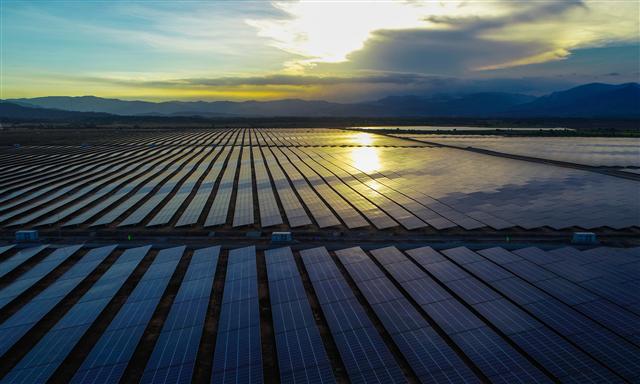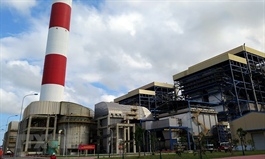Vietnam can become renewable energy superpower
Vietnam can become renewable energy superpower
Vietnam invested $7.4 billion in solar and wind power last year, ranking 8th on the list of renewable energy investments the world over.

Solar power panels at the BIM Solar Power Complex in Ninh Thuan Province, central Vietnam. Photo by VnExpress/Quynh Tran.
|
Weert Börner, deputy ambassador of the Federal Republic of Germany to Vietnam, said Friday that Vietnam has the potential to become a renewable energy superpower.
He was speaking at an exhibition titled "Energy in Transition - Powering tomorrow" hosted by Embassy of the Federal Republic of Germany and German development agency Deutsche Gesellschaft für Internationale Zusammenarbeit (GIZ) on Friday.
Börner said China was the leading country in renewable energy investment in 2020, with $83.6 billion, followed by the U.S. with $49.3 billion.
Vietnam ranked 8th on the list with $7.4 billion, above France and Germany.
He said the world was experiencing an energy shift towards renewable energy to mitigate the impacts of climate change, and Vietnam can become a renewable energy superpower in the future, producing solar, wind and biomass energy.
Nguyen Duc Hien, deputy head of the Central Economic Committee, affirmed that Vietnam was targeting sustainable energy development and environmental protection in its socioeconomic development plans.
The country plans to have renewable energy account for 25-30 percent of total energy production by 2045, he said.
German experts listed six advantages of shifting energy production to renewable energy sources-- lower reliance on foreign energy sources, ensuring energy security as renewable energy sources will not run out, benefiting the environment and human health, creating jobs, encouraging innovation, and creating local added value.
Vietnam’s solar and wind power generation in the first quarter rose 181 percent year-on-year to 7.79 billion kilowatt-hours. This accounted for 13 percent of total power generation, behind coal-fired power at nearly 50 percent and hydropower at 23 percent, according to a recent report by national utility Vietnam Electricity.























